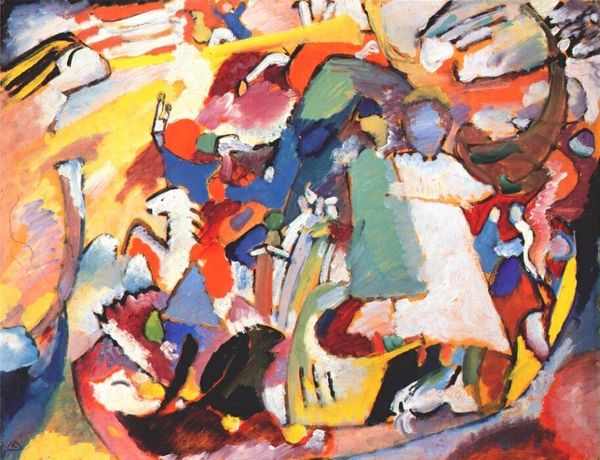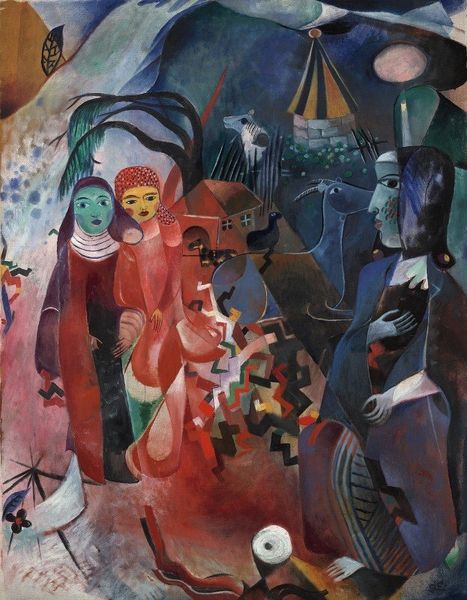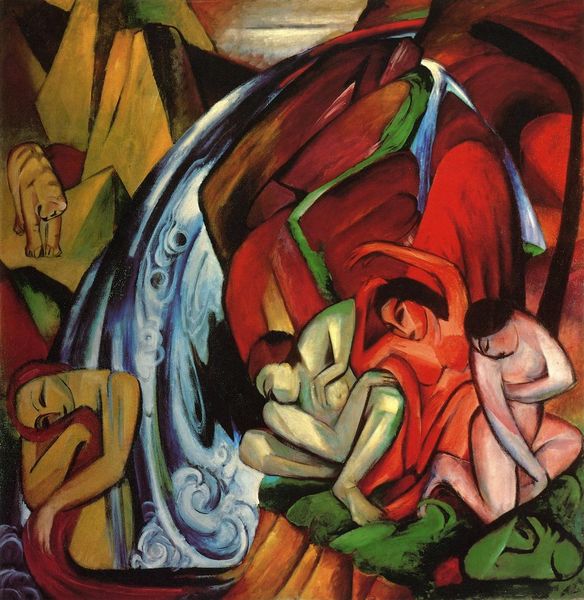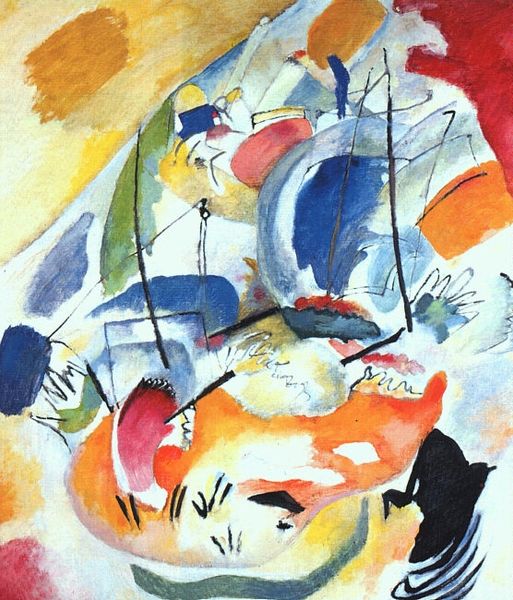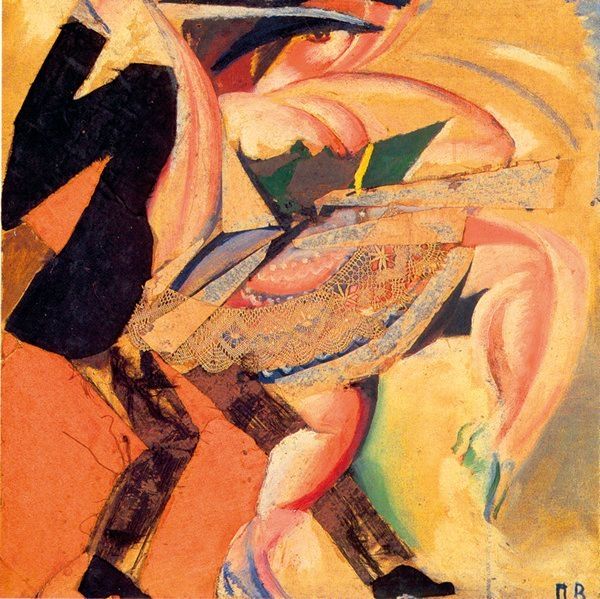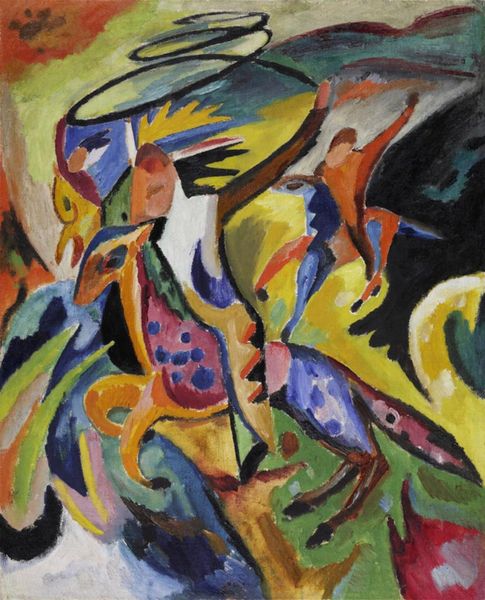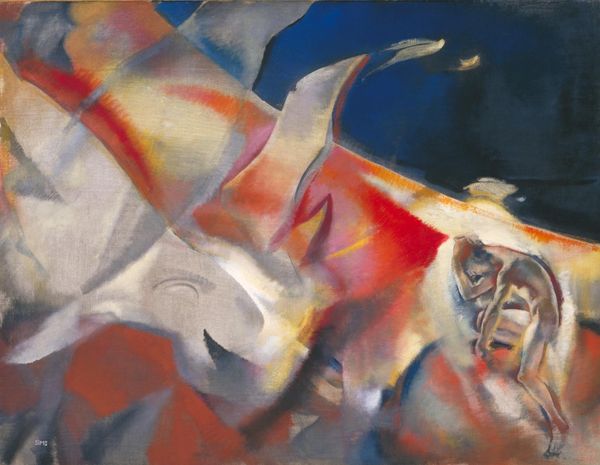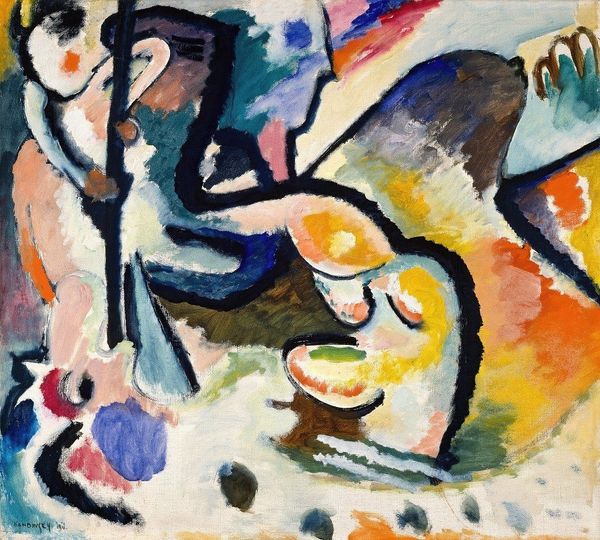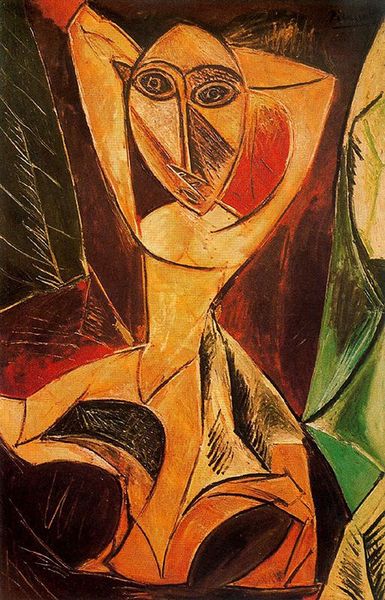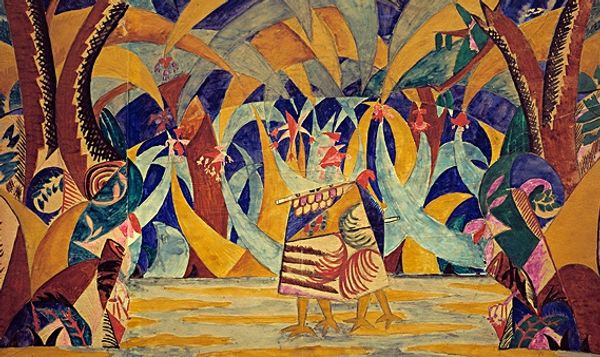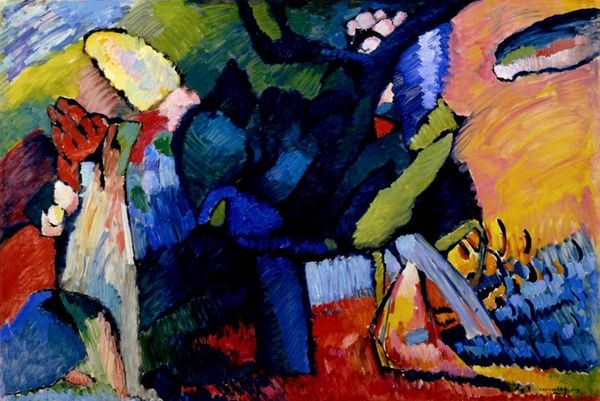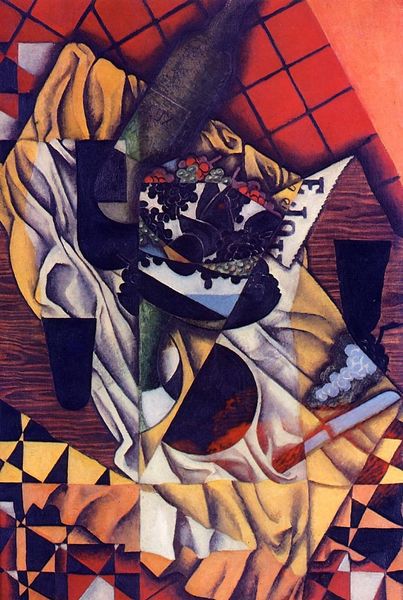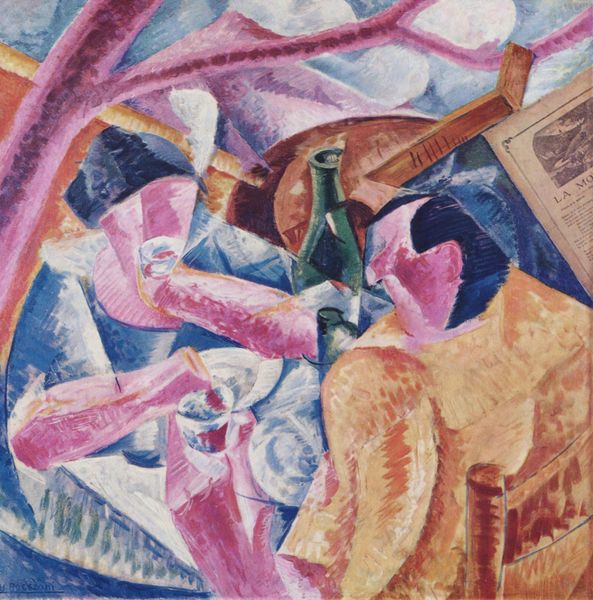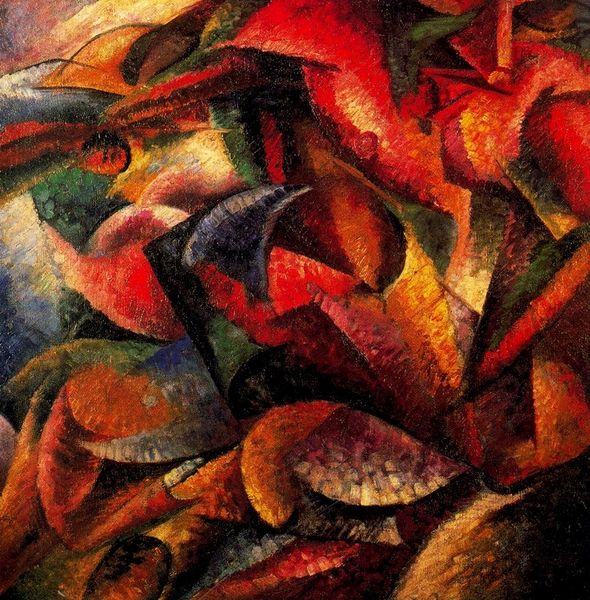
oil-paint
#
oil-paint
#
landscape
#
german-expressionism
#
figuration
#
oil painting
#
expressionism
#
history-painting
Dimensions: 103 x 81 cm
Copyright: Public domain
Curator: August Macke painted "Russian Ballet 1" in 1912 using oil paints. Editor: What strikes me first is the vibrant energy. The colours leap off the canvas, but they’re earthy, almost as if dug up from a particularly fertile garden bed. Curator: The piece fits comfortably within German Expressionism, though Macke softens some of the harder edges often associated with the style. The subject, a ballet performance, becomes almost secondary to the feeling he’s trying to convey. Editor: Exactly! I think he is far more interested in portraying a certain cultural spectacle, but is very concerned with its means of display; the work emphasizes stagecraft by using oil paints, like other theatre sets! Curator: Perhaps he's thinking of it less as representation and more as a feeling—a memory of being transported, like the dancers on stage. I am curious about the clown-like figure. It's peculiar, floating. Does it capture something intangible? Is that August in the back?! Editor: The application of oil here is quite critical—Macke seems to be trying to emphasize materiality through rough brushstrokes that build both light and shadow in such a quick way. Curator: It almost vibrates. The crowd, for example—the daubs of colour create the sense of movement and sound without specific detail. It’s what makes expressionism, for me, feel like poetry. Editor: Precisely, but it is only an echo of an older conversation about artistic agency and consumer value; who really dictates what is beautiful here? Curator: In the end, Macke offers us an opportunity, perhaps not an answer, to see the world through slightly tilted eyes, to understand the joy, artifice and energy in this singular ballet experience, from an age we may romanticize today. Editor: He challenges us to confront a crucial cultural production: is spectacle always meant to simply amaze, or can there be deeper insights when you study and produce these elements too?
Comments
No comments
Be the first to comment and join the conversation on the ultimate creative platform.
